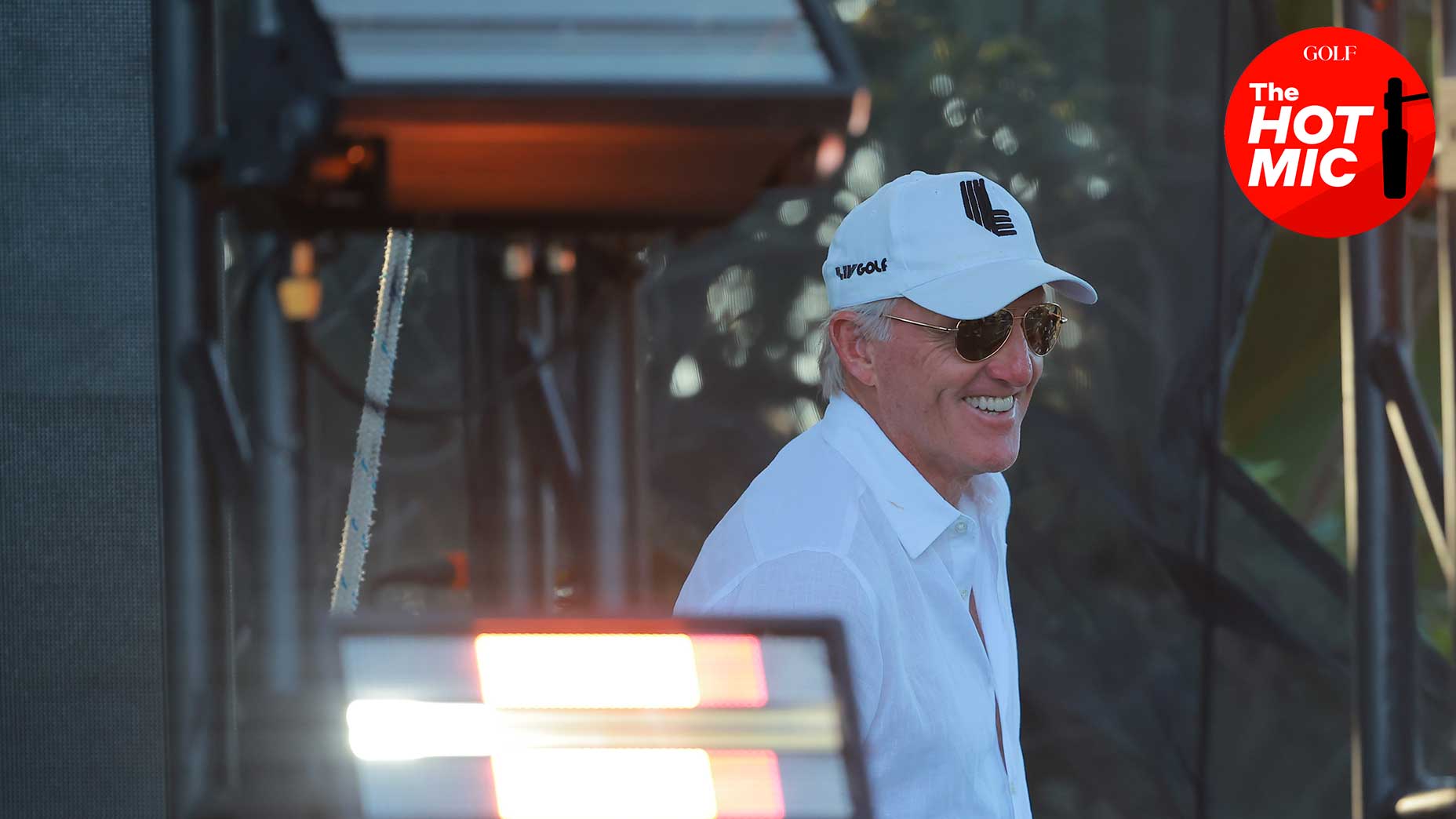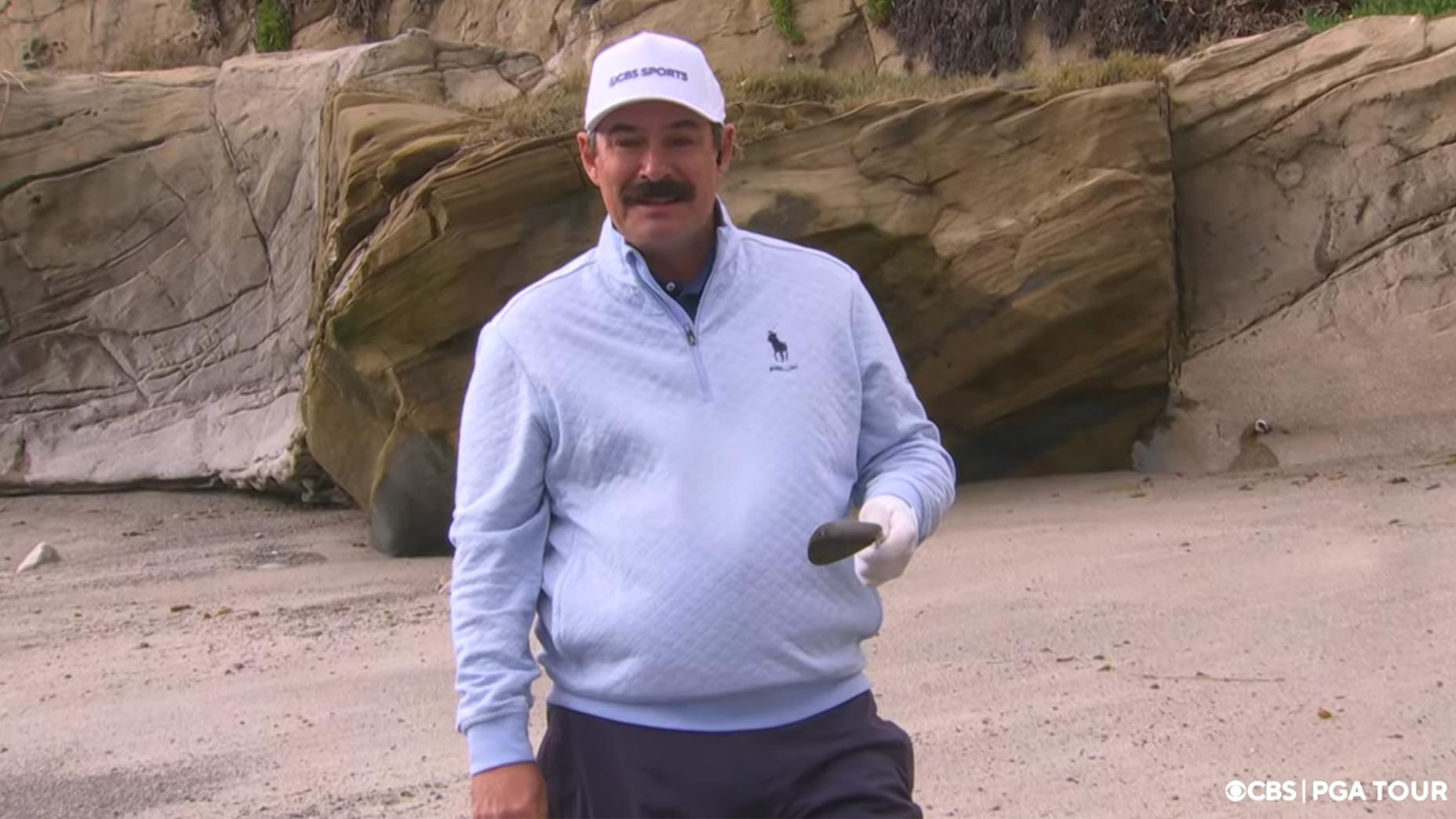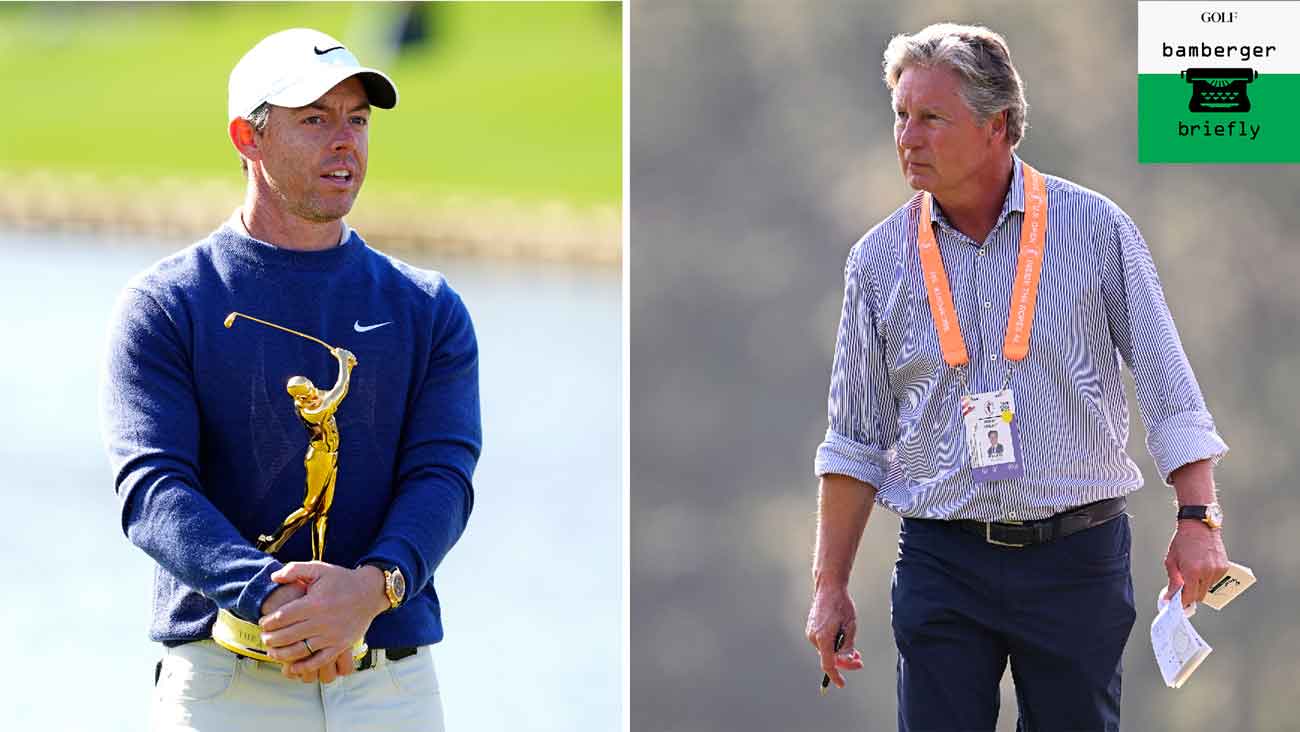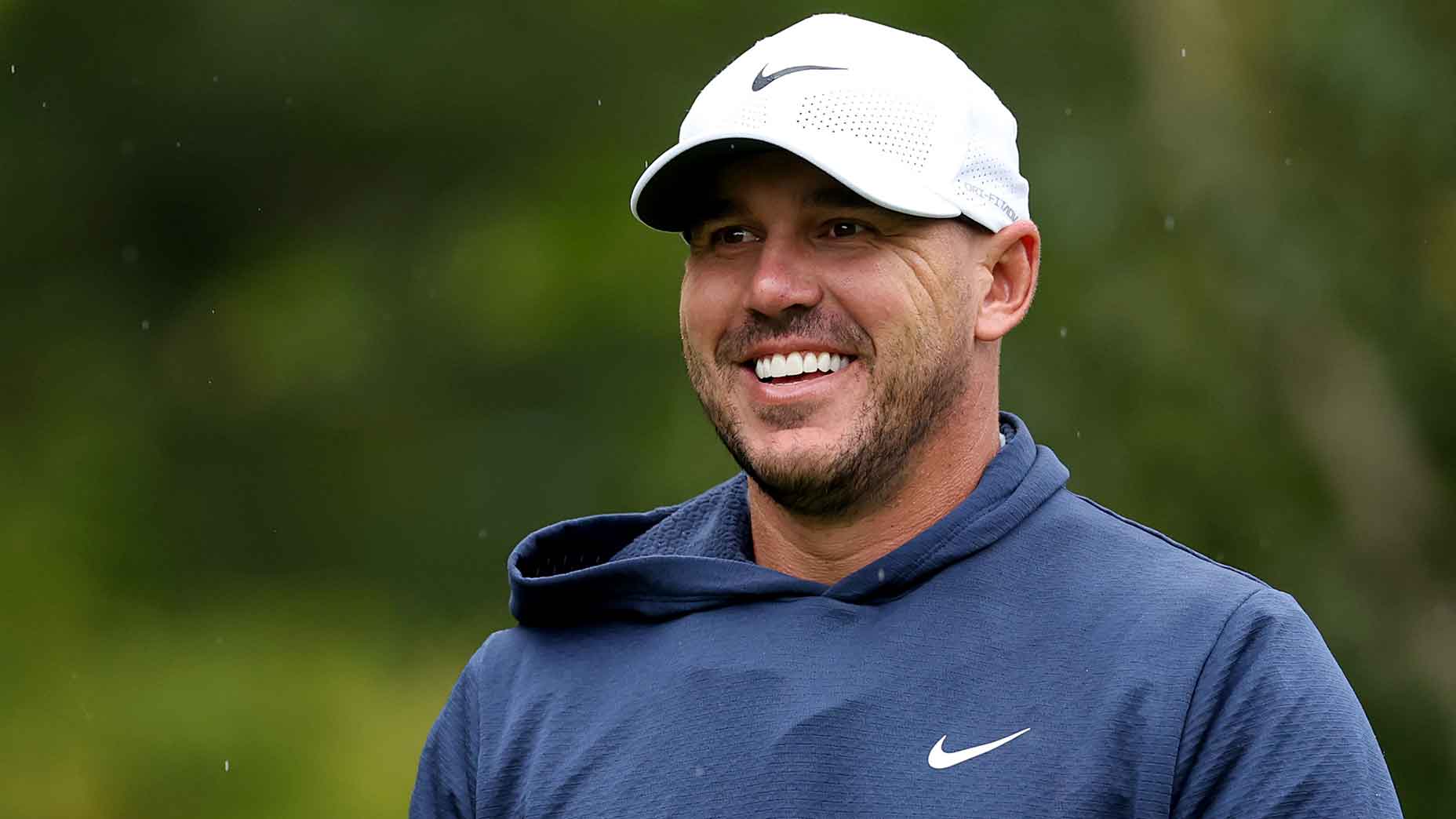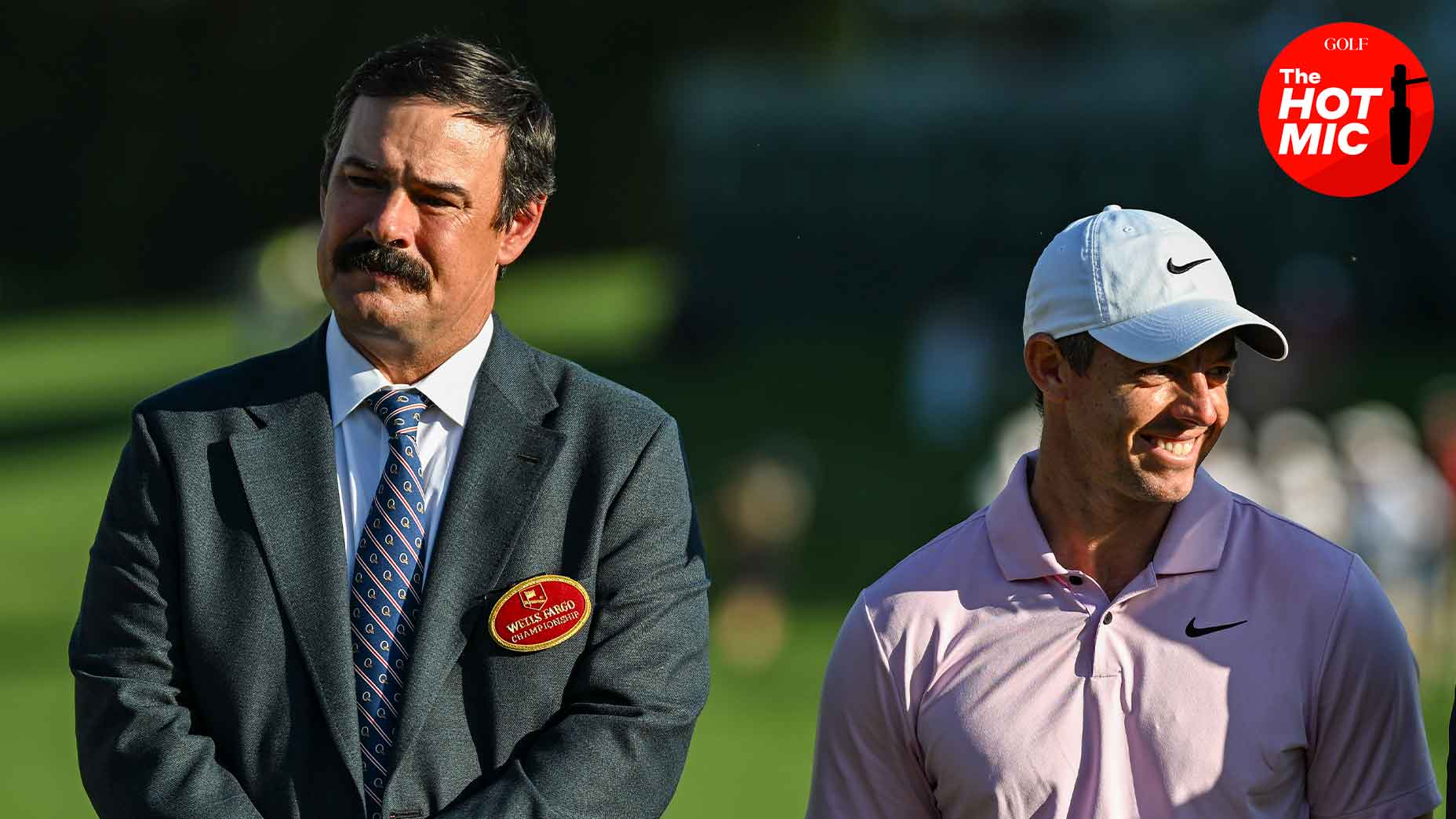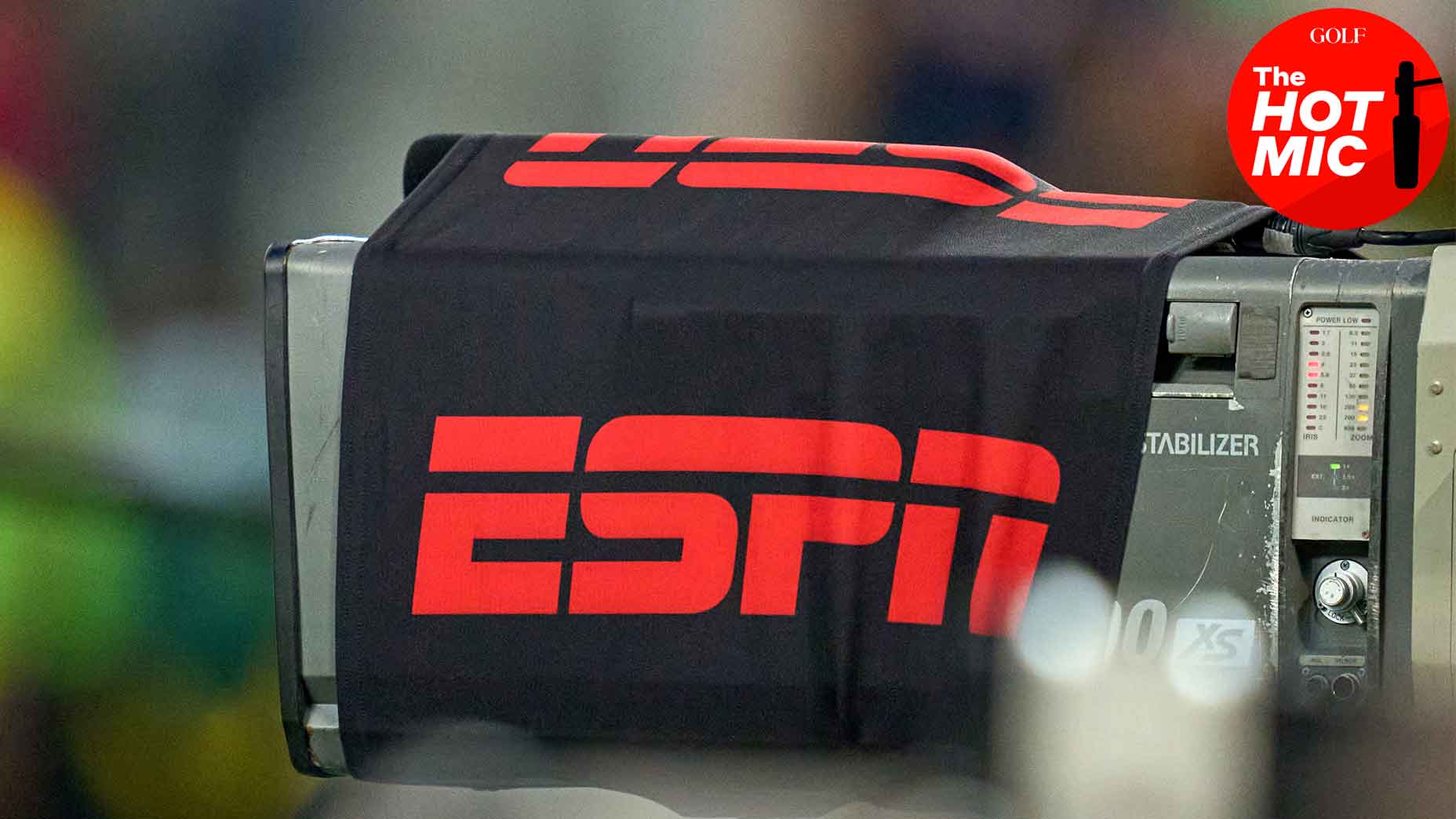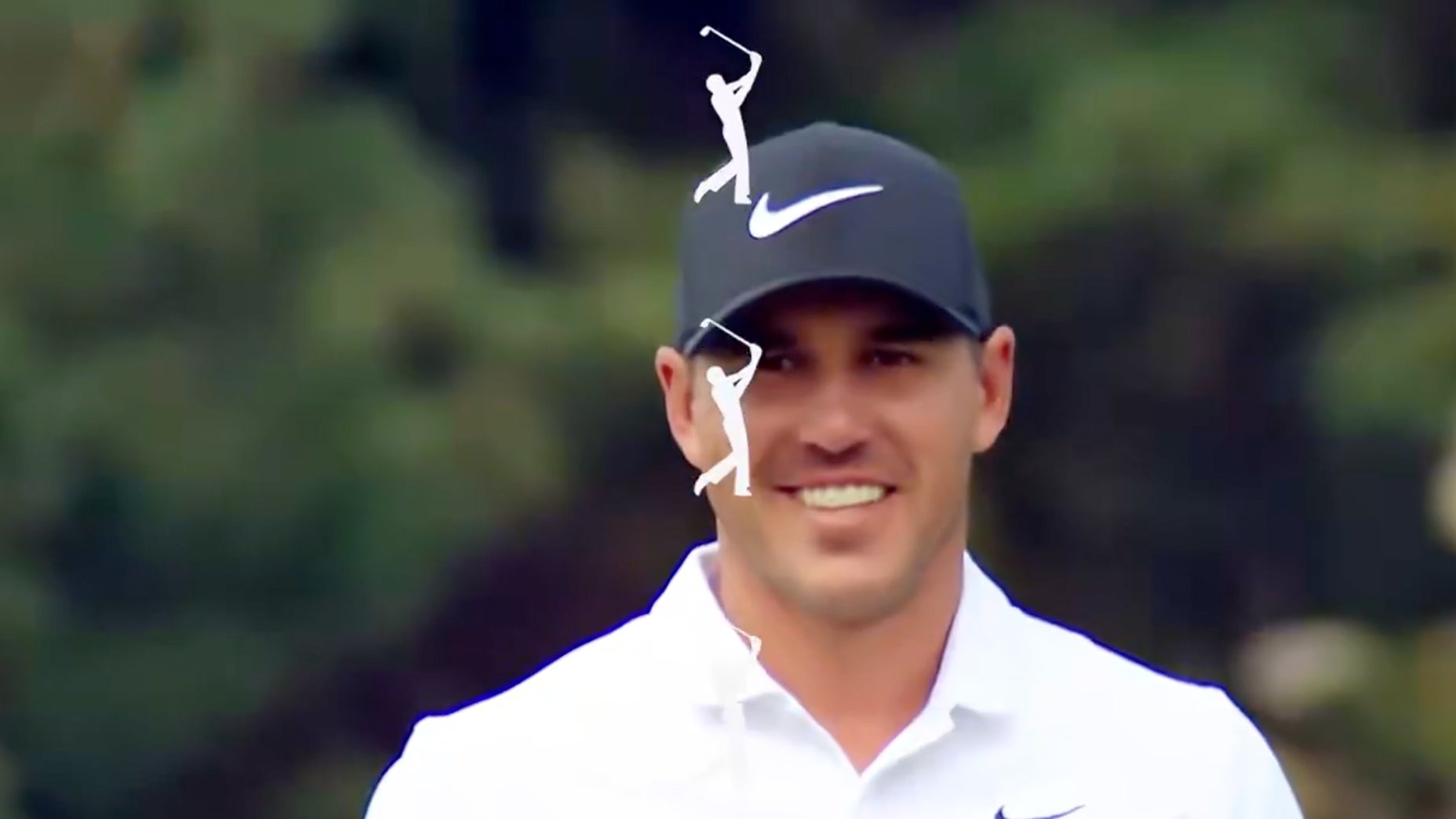We don’t need Max Homa to know that golf’s TV ratings are big news these days. But it’s notable that Homa, whose primary job is to star in golf television, is paying attention to who’s watching.
If there is some common ground between LIV and the PGA Tour, it’s in the understanding that golf’s television ratings are a very big piece of the ongoing battle for golf supremacy — a battle Homa just so happens to have a growing stake in.
The 32-year-old pro has watched his audience multiply in size in recent years, particularly as his success on the PGA Tour has grown. In 2023, that growth culminated in his stepping onto the Tour’s Player Advisory Council, serving as an active voice on the latest round of Tour changes. But it wasn’t the shapeshifting schedule that piqued my interest in the 6-time winner while at TPC Sawgrass last week, it was his involvement in some of the notable golf TV changes we’ve seen in 2023.
It’s possible some golf fans know Homa was one of the driving forces behind the AirPod interview segments that have become a must-watch piece of golf TV in 2023 (it’s why he was also the first golfer to star in them). But at the Players, Homa revealed his interest in the TV product has gone well beyond the qualitative. In fact, Homa said, his interest in golf’s TV ratings has become something of a shared interest between himself and the man in charge, Tour commissioner Jay Monahan.
“Yeah, I actually had a good discussion with Jay about this after Waste Management. I had read something that we had fairly low ratings at one of the events, and I was kind of asking him, does this concern you, considering the changes we’re about to make,” Homa said. “He said, first and foremost, that just straight-up TV ratings isn’t the way the world works anymore. If you think about the Waste Management — as he put it, so much fanfare, especially, and this is corny, all the celebrities and people who aren’t in the game of golf intimately that are out there and sharing it via social media or with their friends. [It’s] boosting not only the PGA Tour but golf in general, which I think is great. So that was quite interesting.”
How do LIV Golf’s TV ratings really compare to the PGA Tour?By: James Colgan
It is quite interesting, particularly considering the careful line the Tour walks between appeasing its television partners (who pay a very pretty penny for the Tour’s media rights) and addressing the realities of sports viewership, which like the rest of the ratings world, has been in some level of decline over the last decade.
Of course, it helps the Tour that ratings have held steadier as of late — a product of both better recording metrics and a slower decline among the Tour’s core audience from traditional linear TV.
“Then of course a day or two later he sent me the final ratings [from the WM Phoenix Open] and it was I think the highest event, I can’t remember what day, Saturday or Sunday, but it was the highest viewed event since the Players the year prior,” Homa said. ”So I thought that was a really good sign.”
Another good sign for the Tour came just a few weeks later, when the Tour’s ratings from the Honda Classic walloped those of LIV Golf’s first 2023 event at Mayakoba. During the two weekend rounds, the average Tour audience during one minute of NBC’s coverage eclipsed that of the total reach of LIV’s CW broadcast.
That’s to say nothing of the Tour’s ratings during its first designated events, like the Phoenix Open, where strong leaderboards have helped to produce strong audiences.
“I think it’s easy for us to, as players, to look at these events and say, man, this is working great,” Homa said. ”Look at the last few designated events and the finishes and the players battling against each other and the leaderboards and just all of it, and it just seems so great.”
A point of clarification: Today's TV ratings release from LIV did NOT show better viewership numbers for Mayakoba.
— James Colgan (@jamescolgan26) March 3, 2023
LIV is reporting the cumulative audience size of their 5-hour broadcast, while the numbers reported on Monday are the avg. audience size during 1 hour
It’s easy to understand why Homa might have an increased interest. For the Tour, this year’s schedule is a massive gamble, particularly considering its TV partners are paying upwards of $600 million annually for the right to broadcast its events. If a supercharged product on designated event weeks isn’t worth the ratings fall-off from a diluted product on non-designated weeks, the Tour could find itself in trouble. So far, that hasn’t proven the case, but we won’t have concrete answers until later in the golf season.
“It’s hard,” Homa said. ”I would assume [the changes] would mean great ratings and great attention, but we don’t know that. So I kind of lean on, since I’ve had this conversation with Jay, where he can kind of continue to show me, not just explain, but show me that it is doing a great job.”
For Homa, it’s not the telling that’s the hard part, it’s the showing.
“I love this game and I want other people to get involved and love this game and watch it,” he said. “I don’t want to put up or be a part of a product that people find to be boring and stale. So I am very much about what we’re doing and these meetings and pushing the envelope and making changes that benefit the golf fan, because again, I am a golf fan.”

